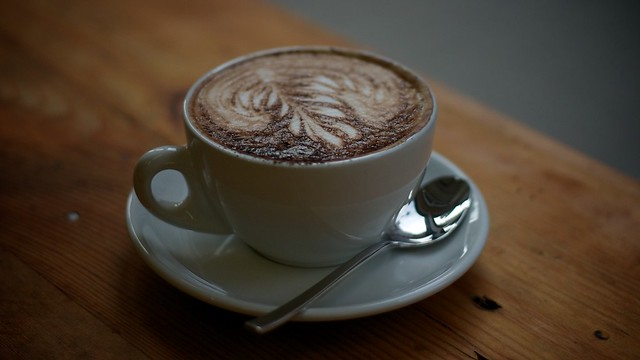An interesting expression that came up in my Dutch lessons recently is bakje troost [ˈbɑ.kjə troːst], which is slang for a cup of coffee, and a diminutive of bak troost. It could be translated literally as a “little cup of comfort” or a “little cup of solace”. It is also known as bakkie troost [source].
Here are some examples of how it’s used (from Reverso):
- Hoe kom je hier aan een bakje troost?
What do I have to do to get some more coffee around here? - Bakje troost voor ons
Cup of Joe for the guys - Kijk eens aan, een bakje troost
Here you go. Cup of joe
Bak means a bin, box, crate, tray or tub; a cup or mug; a jail, slammer or prison (slang), or a car. It comes from the French word bac (ferry, vat), from the Old French bas/bac (flat boat), possibly from the Vulgar Latin *baccu (container), from the Latin bacar (kind of wine glass). Or from a Celtic or Germanic word [source].
Some related words include:
- afvalbak = rubbish bin, trashcan, dustbin
- bloembak = flower pot, planter, window box, flower tub
- engelenbak = the highest box at a theatre (“angel box”)
- glasbak = bottle bank
- ragbak = a run-down car
Troost means comfort or consolation. It comes from the Middle Dutch troost, from the Old Dutch trōst, from the Proto-Germanic *traustą (shelter, help, aid, trust, confidence, alliance), from *traustaz (firm, strong), from thge Proto-Indo-European *deru-/*drew-/*drū- (to be firm, hard, solid, tree) [source].
The English words trust and tryst come from the same Germanic root, as do the German word Trost (consolation), the Swedish word tröst (comfort, consolation, dummy / pacifier), and related words in other languages [source].
This week some of the lockdown restrictions were lifted here in Wales, and cafés are open again, at least for takeaways. Yesterday I saw a long queue of people outside a café, probably waiting for their bakjes troost.
In the beforetimes I did go to cafés now and then for a cup of hot chocolate or herbal/fruit tea, maybe a pastry, and a change of scenery. This is something I miss a bit, but as I don’t drink coffee and rarely drink tea, I have no craving for caffeine, and won’t be queueing outside any cafés.
Are you missing cafés and coffee?

Maybe caffeine is a habit you should pick up, Simon. I have heard from unconfirmed sources that conjugating verbs is easier in a caffeinated state :-))
I really miss cafés! Not so much for the coffee or tea, but just for the atmosphere. I find it easier to concentrate on reading or perhaps studying languages with gentle background noise.